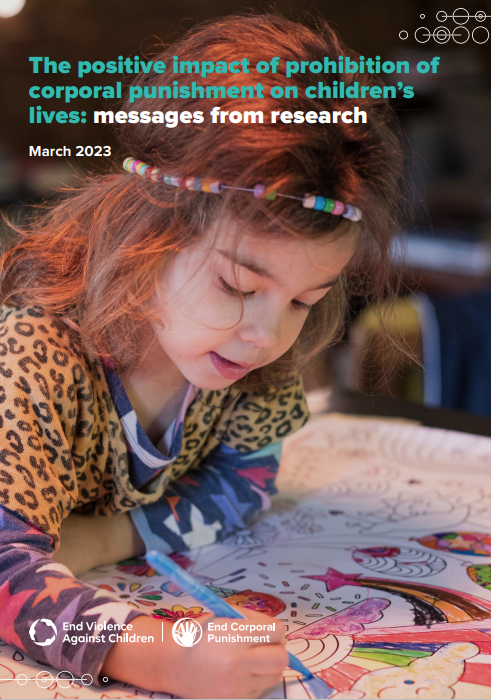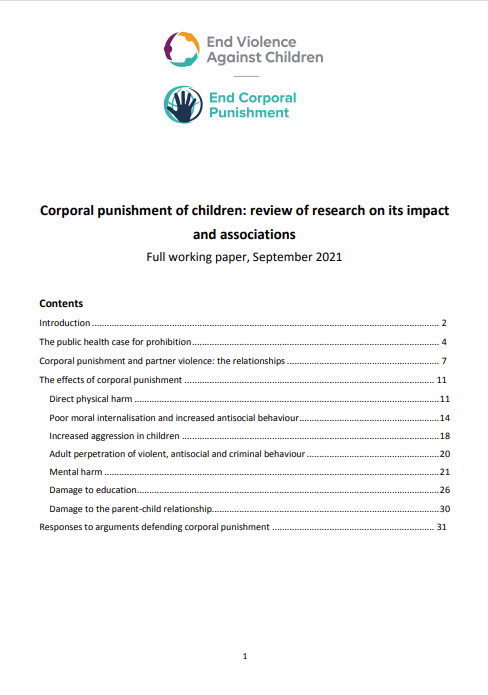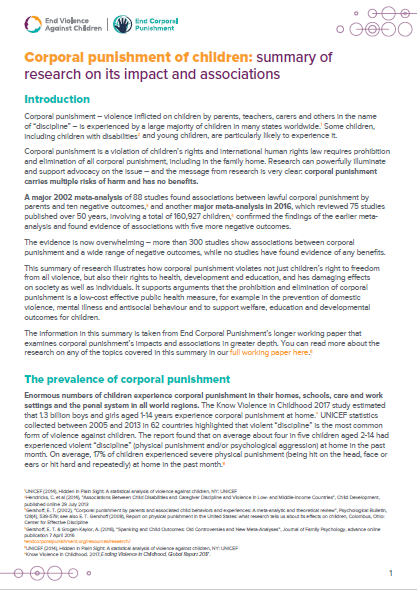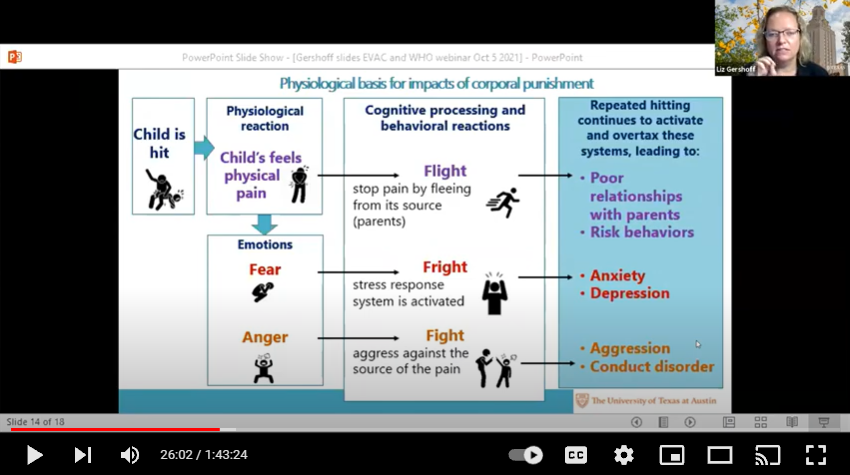Research
The message from research is very clear: corporal punishment carries multiple risks of harm and has no benefits.
Corporal punishment is a violation of children’s rights and international human rights law requires prohibition and elimination of all corporal punishment, including in the family home.
Research can powerfully illuminate and support advocacy on the issue, and the evidence is now overwhelming – more than 300 studies over 50 years involving 100,000s of children show associations between corporal punishment and a wide range of negative outcomes, while no studies have found evidence of any benefits.
Evidence from research also illustrates how corporal punishment violates not just children’s right to freedom from all violence, but also their rights to health, development and education, and has damaging effects on society as well as individuals. It supports arguments that the prohibition and elimination of corporal punishment is a low-cost effective public health measure, for example in the prevention of domestic violence, mental illness and antisocial behaviour and to support welfare, education and developmental outcomes for children.
Our research summaries aim to put the evidence from research into the hands of policy makers and all those working to #EndCorporalPunishment
Research summaries are also available in French, Portuguese and Spanish.
Please contact us if you want to help us produce a translation of the summary in your language, at herbertb@who.int
Research on the negative effects of corporal punishment
The evidence that corporal punishment is harmful to children, adults and societies is overwhelming. The more than 300 studies included in our review of research on the impact of and associations with corporal punishment show links between corporal punishment and a wide range of negative outcomes, including:
- direct physical harm
- negative impacts on mental and physical health
- poor moral internalisation and increased antisocial behaviour
- increased aggression in children
- increased violent and criminal behaviour in adults
- damaged education
- damaged family relationships
- increased acceptance and use of other forms of violence
Intended for use by advocates for prohibition, the review illuminates how corporal punishment violates not just children’s right to freedom from all violence, but also their rights to health, development and education.
You can download the research review here in full, seven-page summary and one-page headline forms.
Research on the positive impact of prohibition
End Corporal Punishment monitors research on the positive impact of prohibiting corporal punishment and other measures taken to reduce its use, and has prepared a paper, The positive impact of prohibition of corporal punishment on children’s lives: messages from research. The paper summarises research showing reductions in the approval and use of corporal punishment in some countries which have reformed their laws to prohibit all corporal punishment of children.
Corporal punishment of children and public health: What does the research tell us?
The role of prevalence and attitudinal Research
Research into the prevalence of corporal punishment of children and into societies' attitudes towards it can be useful in supporting rights-based measures aimed at prohibiting and eliminating all violent punishment in childrearing and education. It makes the issue visible, challenging claims by some governments that it is not a problem, and it provides a benchmark for measuring the success of efforts to implement prohibiting legislation and eliminate corporal punishment in practice. When the research directly involves children, it helps to give them a voice, exposing what happens to them in schools and in the privacy of their own homes.
Prevalence/attitudinal research published in the last ten years is summarised in reports on every state and territory under the research tab of the individual countries.





